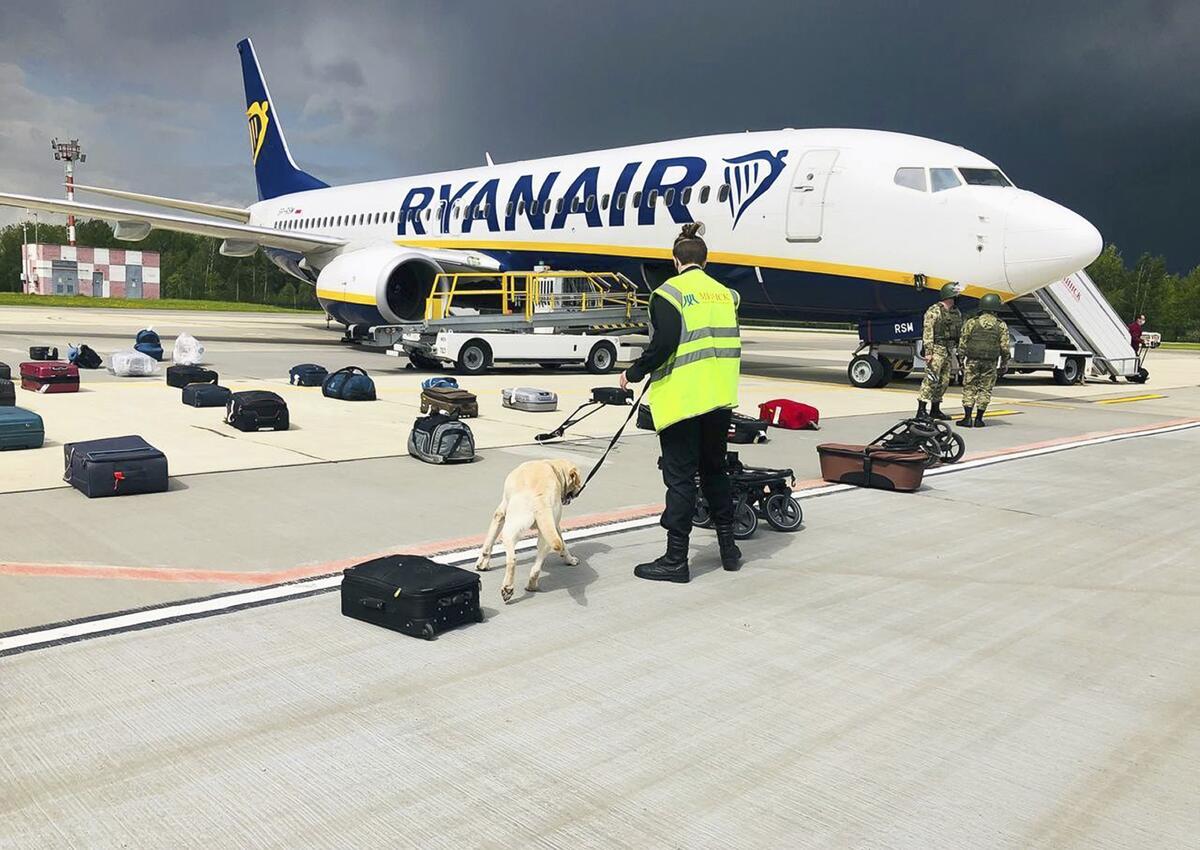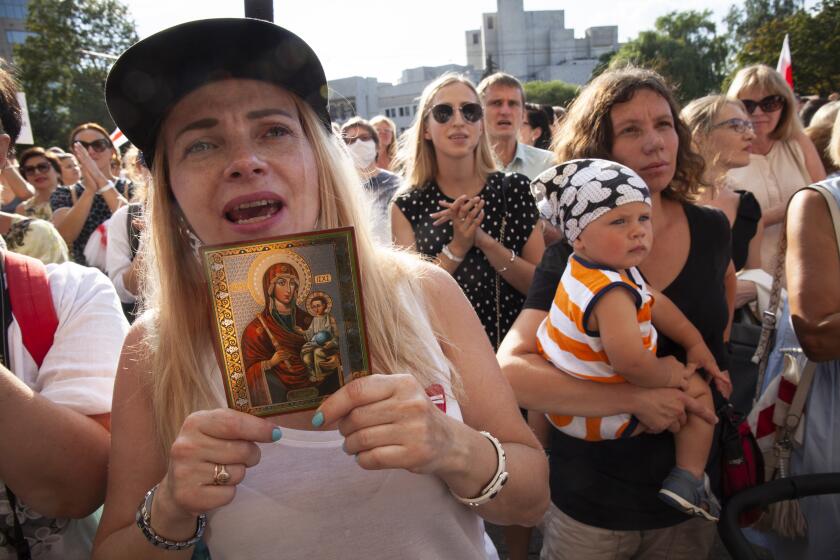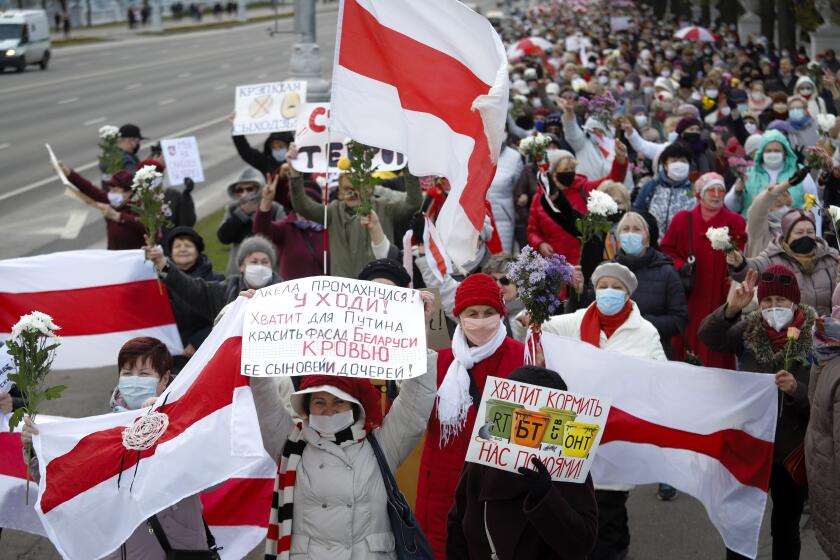Why has a plane’s forced landing in Belarus become an international incident?

- Share via
The diversion of a Ryanair flight en route to Lithuania by Belarus, leading to the arrest of a dissident journalist who was on board, has sparked international outrage and calls for tough sanctions against the former Soviet-bloc nation.
Here is a look at what happened in the sky over Belarus and its aftermath.
What happened on the Ryanair flight?
Ryanair Flight FR4978, traveling Sunday from Athens to the Lithuanian capital of Vilnius, was in Belarus airspace about six miles from the Lithuanian border when it changed direction and turned toward the Belarusian capital of Minsk.
Ryanair said Belarusian flight controllers told the pilots that there was a bomb threat against the jetliner and ordered them to land in Minsk. The Belarusian military scrambled a MiG-29 fighter jet in an apparent attempt to encourage the crew to comply with the orders of air-traffic controllers.
Once the plane landed, Belarusian security agents arrested Raman Pratasevich, who ran a popular messaging app that helped organize mass demonstrations against President Alexander Lukashenko, Belarus’ authoritarian leader. They also removed from the plane Pratasevich’s Russian girlfriend, Sofia Sapega, who studies at a Vilnius university.
Detainees swept up in protest against Belarus president describe harrowing jailhouse abuse. Major rights group deems some of it torture.
Agents with dogs then checked the plane and the passenger luggage, and eventually let the flight continue to Vilnius hours later.
Ryanair’s CEO Michael O’Leary described the move as “a case of state-sponsored hijacking … state-sponsored piracy.”
Why did Belarus do it?
The move led to the arrest of Pratasevich, a 26-year-old activist and journalist who left Belarus in 2019 and faced charges there of inciting riots. He was a blogger and co-founder and editor of Nexta, a popular channel on the Telegram messaging app that was a key factor in organizing protests in Belarus after a presidential election in August 2020.
Lukashenko, who has run the nation of 9.3 million people with an iron fist for more than a quarter-century, was declared the winner by a landslide, but the opposition and some election workers say the vote was rigged. Months of protests followed, representing the strongest challenge to Lukashenko’s rule since he took over in 1994 following the demise of the Soviet Union.
Thousands of retirees rally in the Belarusian capital of Minsk to demand the resignation of the country’s longtime authoritarian president.
The Belarusian authorities have unleashed a brutal crackdown on demonstrations. More than 34,000 people have been arrested since August, including opposition activists, and thousands have been beaten and abused by police to try to stem the protests.
What is the international reaction?
U.S. Secretary of State Antony J. Blinken called the incident “shocking” and appealed for Pratasevich’s release. The European Union summoned Belarus’ ambassador to condemn the act against the jetliner, which was traveling between two of the 27-nation bloc’s member states.
EU Commission President Ursula von der Leyen said it amounted to a “hijacking,” and Lithuanian President Gitanas Nauseda called it a “state-sponsored terror act.”
Exiled Belarusian opposition leader Sviatlana Tsikhanouskaya, who fled to Lithuania after the August election, called on the International Civil Aviation Organization to begin an investigation, and the ICAO later said that it was “strongly concerned by the apparent forced landing.”
An EU summit is considering a strong response, over and above previous sanctions on Belarusian officials for their involvement in rigging the August election and the crackdown on protests. Some EU leaders called for scrapping landing rights in the bloc for Belarus’ national airline or exclusions from sports events.
Belarus can rely on its main sponsor and ally, Russia, which has provided political support and financial assistance to Lukashenko’s government amid the protests.
More to Read
Sign up for Essential California
The most important California stories and recommendations in your inbox every morning.
You may occasionally receive promotional content from the Los Angeles Times.












